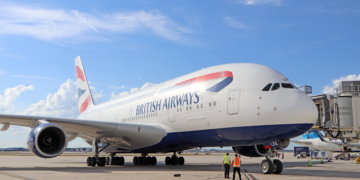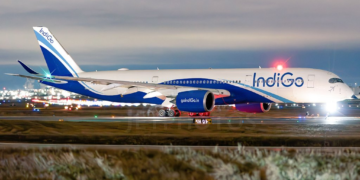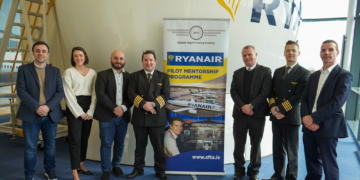The world’s largest passenger plane, the Airbus A380, has been selected as a demonstrator to test new cutting-edge open fan engine architecture that might help reduce carbon emissions by up to 20%.
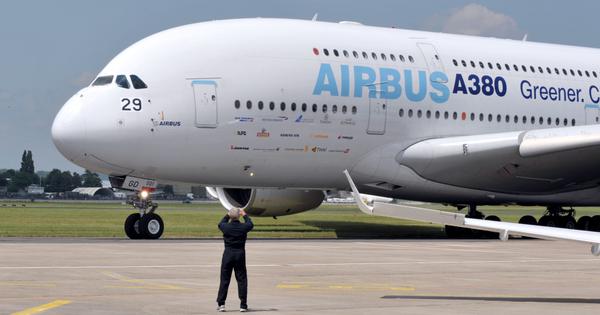
Airbus and CFM International presented the project on Tuesday at the Farnborough Air Show, just outside of London, an annual trade event exhibiting the latest in aerospace innovation.
It’s the latest innovation to be tested on the A380 “superjumbo,” which has had a rocky recent history. Due to a lack of demand, production of the much-loved plane was terminated in 2021. Airlines grounded existing planes during the epidemic, only to see a subsequent recovery because to increased travel demand.
CFM has been creating cutting-edge propulsion technologies as a part of its Revolutionary Innovation for Sustainable Engine (RISE) demonstration programme. GE and Safran Aircraft Engines are the parent companies of CFM.
With a flight test campaign on board this A380, which is scheduled to take to the skies in the latter half of this decade from the Airbus Flight Test Center in Toulouse, France, the goal is now to mature and expedite that.
Prior to that, CFM will conduct engine ground tests and flight test validation at the Victorville, California facility of GE Aviation’s Flight Test Operations.
The goals of the flight test programme are to demonstrate improved fuel efficiency that would reduce CO2 emissions by a fifth compared to today’s most efficient engines, to better understand engine/wing integration and aerodynamic performance, and to ensure compatibility with 100% Sustainable Aviation Fuels (SAF).
This new technology could boost the aviation sector’s ambitious goal of achieving net-zero carbon emissions by 2050.
“New propulsion technologies will play a significant role in attaining aviation’s net-zero objectives, coupled with new aircraft designs and sustainable energy sources.”
According to Airbus Chief Technical Officer Sabine Klauke
“The CFM RISE Program is all about pushing the boundaries of technology, rethinking what is possible, and assisting with greater long-term, sustainable growth for our sector”
CFM International’s president and CEO, Gal Méheust
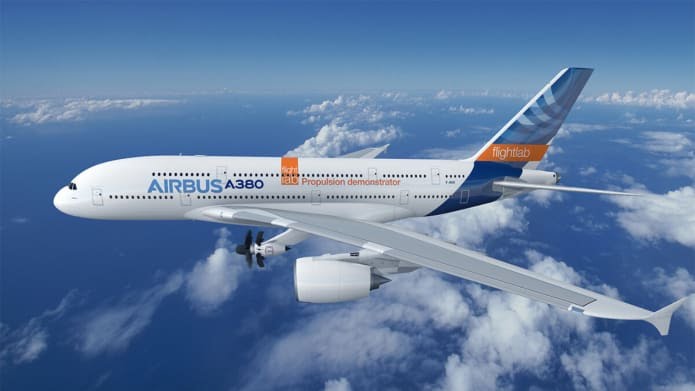
Airbus stated earlier this year that it would test an experimental hydrogen engine on an A380 as part of yet another collaboration with CFM International in an effort to develop a zero-emission aircraft by the year 2035.
Read more:
Airbus to test hydrogen contrails with glider
Join our telegram group for latest aviation Updates:-
Stay tuned…









